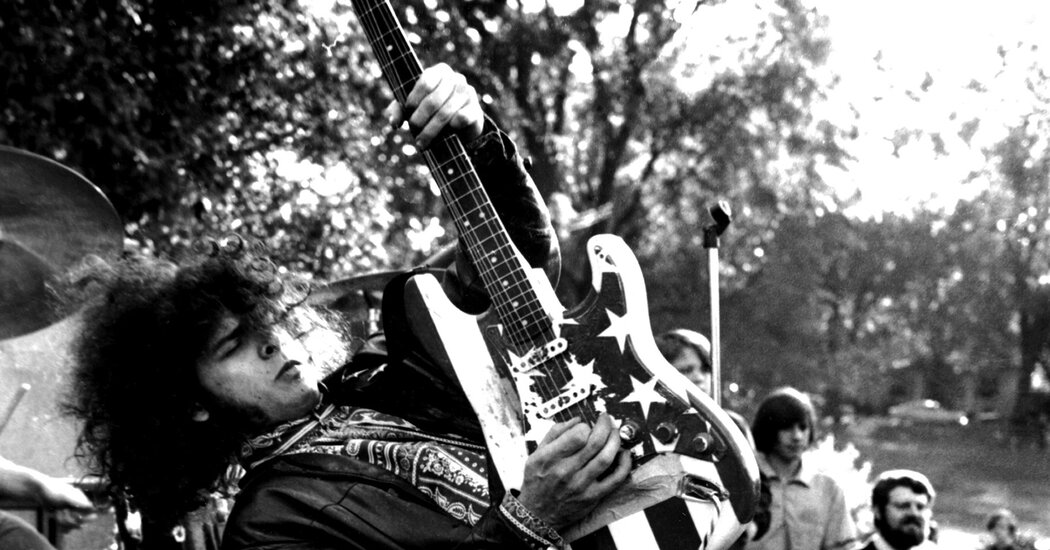Wayne Kramer, whose explosive guitar playing with the influential Detroit band the MC5 in the late 1960s and early ’70s helped set the template for punk rock, died on Friday. He was 75.
His death was announced in a post on his official Instagram account, which said the cause was pancreatic cancer. It did not say where he died.
The MC5 (short for Motor City Five) formed in Lincoln Park, Mich., in 1965.
Mr. Kramer and Fred (Sonic) Smith teamed to provide the twin-guitar attack that was at the heart of the band’s sound and the centerpiece of its notoriously loud and frenetic live performances.
In ranking Mr. Kramer and Mr. Smith, together, at No. 225 last year on its list of the 250 greatest guitarists of all time, Rolling Stone said the two “worked together like the pistons of a powerful engine” to “kick their band’s legendarily high-energy jams deep into space while simultaneously keeping one foot in the groove.”
The band, which also featured the vocalist Rob Tyner, the bassist Michael Davis and the drummer Dennis Thompson, splintered in the early 1970s after just two studio albums.
Its debut album, “Kick Out the Jams,” a live set recorded at the Grande Ballroom in Detroit in 1968, is considered one of the most influential albums of its era. It inspired generations of musicians, including the Clash, the Sex Pistols, the Ramones and Queens of the Stone Age.
Tom Morello of Rage Against the Machine said on Instagram on Friday that Mr. Kramer and the MC5 “basically invented punk rock music.”
Mr. Kramer was arrested on drug charges in 1975 and sentenced to four years in prison.
In 2009, after he returned to performing and recording as a solo artist, he established Jail Guitar Doors U.S.A., a nonprofit that donates musical instruments to inmates and offers songwriting workshops in prisons, in partnership with his wife, Margaret, and the British singer-songwriter Billy Bragg.
The name comes from “Jail Guitar Doors,” a song by the Clash that opens with a line about Mr. Kramer’s struggles with substance abuse and the law: “Let me tell you about Wayne and his deals of cocaine.”
“The guitar can be the key that unlocks the cell,” Mr. Kramer told High Times in 2015. “It can be the key that unlocks the prison gate, and it could be the key that unlocks the rest of your life to give you an alternative way to deal with things.”
A full obituary will follow.
